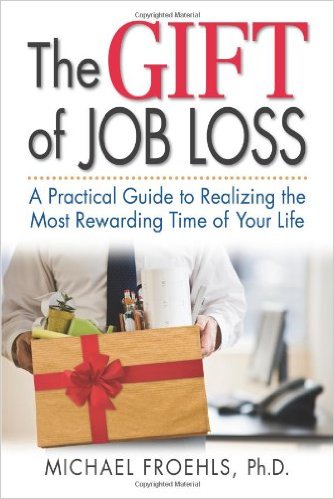Coping with Job Loss - Emotional and Practical Support
Coping with the grief of job loss is a major life challenge. We help with the emotional trauma as well as giving you practical ideas for finding work and facing interviews.
There are many crises during our lifetimes, many of which are very obvious. Neighbours rally around after the death of a spouse or a child. People understand those losses. The grief seems natural and it is noticeable. There is therapy available for those suffering bereavement.
However, there are other losses which can cause a lot of pain and suffering, which are not as noticeable to the rest of society.
The loss of a job is one of these. It can cause a total change of lifestyle and can cause depression in the individual and the surrounding family members.
Many people feel that their self identity is based around what employment they have. How often is “What do you do?” the first question people ask you? So coping with job loss can be tough.
Read about the loss of self-identity here.

Photo by Tim Gouw on Unsplash
Jobs are Less Secure These Days
In today’s frustrating financial markets, many who thought their jobs were secure in banks, universities, retail, government etc are losing their roles. No-one these days is truly able to expect a job for a lifetime. After years of training and experience it is increasingly common for people to find themselves out of work. Many jobs these days are only temporary contracts and some find themselves out of work every six or twelve months.
Loss of a job can be caused by these or many other reasons. Redundancy, illness, (see loss of job due to disability) retiring from the armed forces. Whatever the reason, the whole structure of life is altered.
Help with Coping with the Grief of Job Loss
When the unemployed person is the family breadwinner the anxiety can be huge. The mortgage or rent still has to be paid. Food has to be bought. Medical bills, clothes for the children. Electricity, gas, water, rates. The list is endless.
In a single parent family, it is the only income which is gone.
The sense of loss, anxiety and shock can be enormous. It is grief. Grief for the loss of the job, but also for the lifestyle, the work friends, security.
Coping with job loss can be similar to suffering a bereavement. There are many pages on this site which will help you understand the emotions of grief and what you may be feeling. Read about dealing with grief and how to cope. Many of the emotions you may be feeling will be similar to those who have lost a loved one.
Don’t bottle it all up because you are feeling guilty or ashamed. You are not to blame. Make sure you talk with your family about the problems. It’s their anxiety too and they all need support. Let them support you too. Don’t try to shoulder it all on your own. You are in it together.
Try to stay cheerful and positive for your own sake, as well as the family’s sake. Avoid too much alcohol, sleeping pills or cigarettes.
There will be times when you will feel rotten. So what? Really, we all do at times. My grandmother used to say, “the trouble with your generation is that you expect to be happy!” Accept that sometimes you will have bad times. You will enjoy the good times far more when they come back, and they will.
Good luck, keep trying. Be positive. No-one wants to know you when you’re miserable! Keep saying “I’m fine”. You will get to believe it.
Like all the advice given to the bereaved on this site, the best way of coping with job loss is to organise, organise, organise.
Practical Ideas for Coping with Job Loss
- Sort out your priorities.
- Organise your finances.
- Get signed on at your welfare organisation and job search providers.
- Talk to the bank, and consolidate your debts into one low interest loan. Seek financial advice if you have to. Your welfare organisation may put you in touch with a free service for this. Ask around.
- Do you need to downsize the house?
- Put your mortgage on hold?
- Make sure your curriculum vitae or resume is up to date, accurate and well written. It is your first point of contact with new employers and needs to look good. Again, if you’re not sure, or haven’t done one for a long while, get help. Job search providers should be able to advise on this.
Don’t avoid the issues.
You need to keep busy, so organise all these things. It will help you
to feel more in control of your life.

Photo by Martin Bjork on Unsplash
Think Positive and Outside the Box
Try to look at this as an opportunity to find a job that you might like better. Go for what you have always wanted. Or think about studying again. You might be able to get additional support if you are a mature student.
Think outside the box. What life skills do you have? You have no doubt picked up lots of experience and skills throughout life that you don’t even think about. What are you good at? Organising? Talking to people? Numbers? Write a list of all the things you like doing, and all the things you think you are good at. It will surprise you and give you more confidence in going for jobs. Don’t be afraid of going for something different, or even something you think you are overqualified for, at least in the short term. It will keep you in the job marketplace and help you meet people. You can never tell where the next amazing opportunity is going to come from. So be open to all possibilities.
You could take on temporary work while looking for a permanent job. Be willing to change, re-train or take on menial work. Remember there are lots of people out there looking for work too. You have to search.
Search newspapers, job agencies and the Internet. Look around your town centre, sometimes jobs are put into the windows of libraries, shops, swimming pools. Send off lots of job applications. But don’t get despondent when many don’t even acknowledge your application. Unfortunately, that just seems to be the way things are these days. It is not a reflection of your abilities. Just keep trying and eventually you will get an interview.
Compete, believe in yourself, no-one is going to knock on your door. Think positive, be positive, sell yourself. Be confident.
Coping with Interviews
OK, you feel anxious, you have butterflies, you feel inadequate, as if
thrown on the scrapheap. But so does everyone else going for this
interview. You just have to act the part. Pretend better than the
others. You can do it. Just keep trying.
When you are lucky
and get an interview, look smart, have a hair cut, clean your shoes.
The disheveled hippy look or designer stubble may be the latest fashion,
but may not impress your future employer! You will be representing
their company if you get the job. They want you to impress their
customers and them.
Arrive early for interviews. It will not
impress them if you are late! Find out transport times beforehand, you
don’t want to be rushing.
Do some research about the company so
you can talk knowledgeably about the work. Eat and sleep well and keep
fit, so you will look your best. Coping with job loss is stressful, so you need to look after your health.
A Few More Positive Ways of Dealing with Job Loss:
Use your spare time wisely. Don’t sit around and mope, but keep busy, get on with things. Get on with some DIY in the home or garden that was always put off when you were working. You will get a sense of satisfaction from a job well done.
Could you start your own business? Sometimes there are government grants, or start up schemes you could apply for.
Sometimes volunteering can be a good way to meet people and often paid jobs can come along through the organisation.
Don’t hide away, talk freely to friends and neighbours about your job loss. It’s not as embarrassing as you think. Nearly everyone has some experience of job loss at some time in their lives. Try to see coping with job loss as just another of life's challenges.
Sometimes word of mouth through friends and networks is what finds the job. So don’t sit at home and mope. Get some fresh air and go and visit friends.
Recommended Read:
Related Pages:
- Grief and Sympathy Home
- Disenfranchised Grief
- Coping With Job Loss
For Remembrance:
Sales from our pages result in a small commission to us which helps us to continue our work supporting the grieving.
Memorial Jewelry to Honour a Loved One
Check out our lovely range of memorial jewelry for any lost loved one. Pendants, necklaces, rings or bracelets, we have them all in all kinds of styles. Choose for yourself or buy as a sympathy gift.
Create an Online Memorial Website
Honour your loved one with their own memorial website. Share photos, videos, memories and more with your family and friends in a permanent online website. Free for basic plan with no ads.








